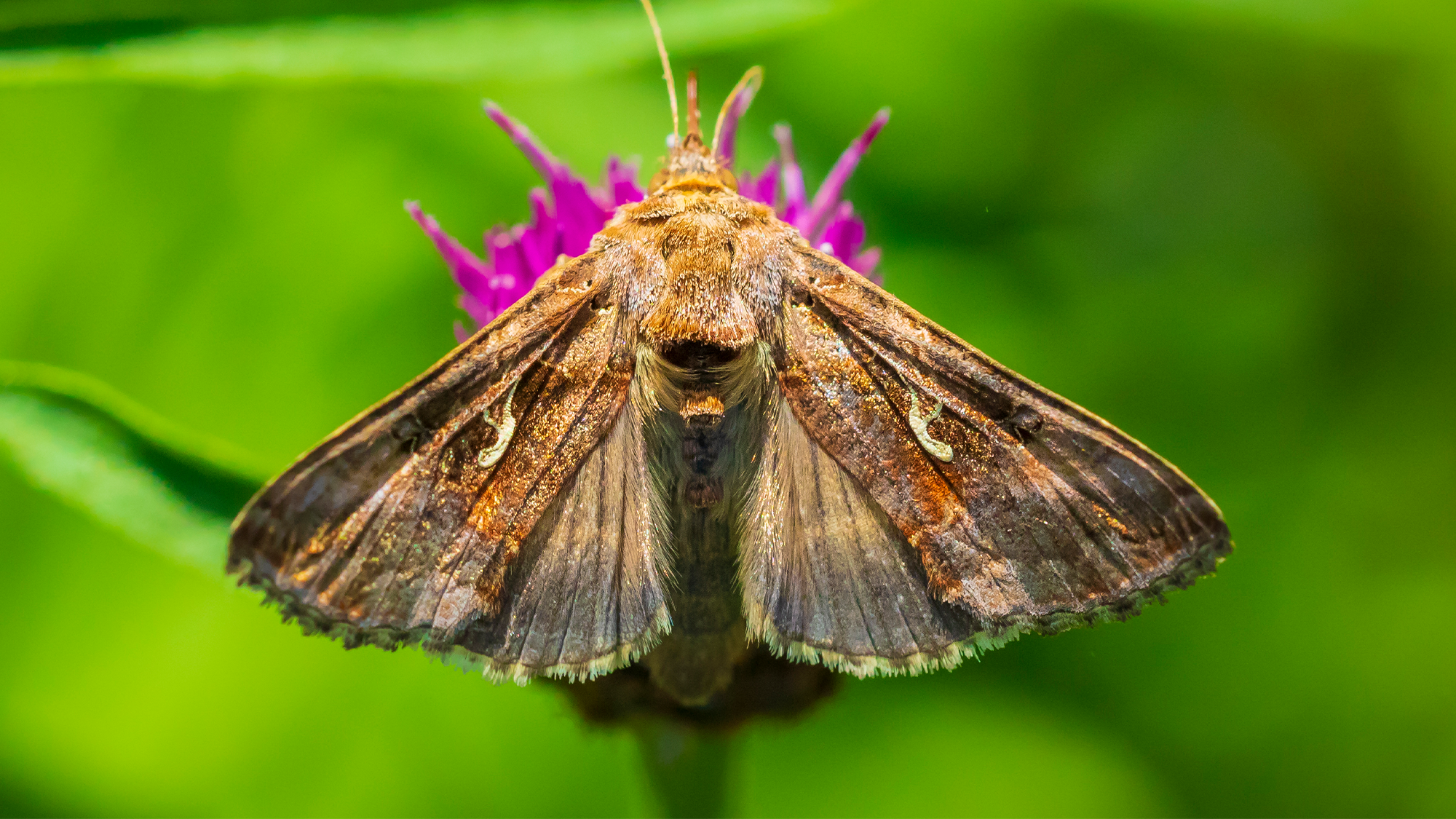

Bees are not just the only precious pollinators in need of strong conservation and protection efforts. A study published June 5 in the journal Ecology Letters found that not only do night-time pollinators such as moths likely visit just as many plants as bees, but they may be less resilient than bees due to their more complex life cycle and more specific plant requirements.
[Related: Move over, bees: The lowly weevil is a power pollinator.]
The study also found that despite these threats and pressures, moths play a critical role in supporting plant communities in urban settings, accounting for roughly a third of all pollination in trees, crops, and flowering plants. In more urbanized areas, the diversity of pollen that is carried by bees and moths decreases, and the urban pollinators have fewer flower resources available.
The team behind the study suggests that supporting the introduction of plant species that are beneficial to moths and bees will only be more important to the health of urban ecosystems.
“As moths and bees both rely on plants for survival, plant populations also rely on insects for pollination,” study co-author and pollinator ecologist at the University of Sheffield Emilie Ellis said in a statement. “Protecting urban green spaces and ensuring they are developed in such a way that moves beyond bee-only conservation but also supports a diverse array of wildlife, will ensure both bee and moth populations remain resilient and our towns and cities remain healthier, greener places.”

According to the study, bees and moths also visit very different plant communities. Moths were found to be carrying more pollen than previously believed, and tend to visit more types of trees and fruit crops, along with their usual pale fragrant flower species. Urbanized areas can sometimes have less diversity in plant species and an overabundance of non-native plant species. These can both lead to lower insect interactions for less attractive plant species, which harms both insect and plant populations.
The team used DNA sequencing to identify the pollen that sticks to night-flying moths as they visit flowers. This analysis revealed the wide range of plant species that are not likely pollinated by bees.
[Related: The alluring tail of the Luna moth is surprisingly useless for finding a mate.]
“It’s clear from this study that pollination is achieved by complex networks of insects and plants, and these networks may be delicate, and sensitive to urbanization,” co-author and University of Sheffield evolutionary and chemical ecologist Stuart Campbell said in a statement. “We can also learn which plant species might be the best sources of food for different insects, including nocturnal ones like adult moths, and use that information to better provide for all our pollinators”.
Better understanding how crucial moths are to pollinating plants has implications for urban planning, policy, and wildlife-friendly garden initiatives, especially since populations have dropped by about 33 percent in the United Kingdom over the past half century alone.
“When planning green spaces, consideration needs to be given to ensure planting is diverse and moth-friendly as well as bee-friendly, to ensure both our plants and insects remain resilient in the face of the climate crisis and further losses,” said Ellis.
Some advice for making your own garden more pollinator friendly include using plants that attract both specialist pollinators and generalist pollinators, planting a wide variety of plant species, and keeping those weeds growing.
